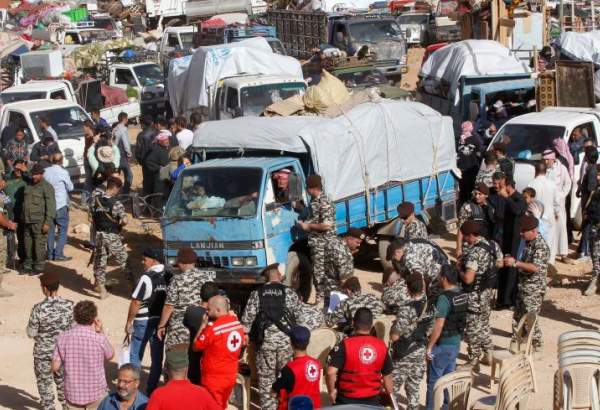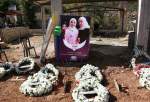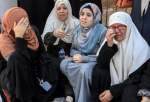The repatriation from Syria to Lebanon that took place on Saturday was voluntary. The move came after the security files of those who have applied for their return were completed, said Lebanon’s state-run National News Agency.
According to the agency, around 330 Syrian refugees left from the eastern Bekaa Valley to Syria’s western Qalamoun region, which borders Lebanon.
The bordering region located in North-Eastern Lebanon includes Qalamoun and Arsal which witnessed some of the worst fighting of Syria’s 11-year conflict years ago, where Daesh terrorists were scattered in the Lebanon Mountains and the Syrian highlands.
Head of Lebanon's Directorate of General Security, Major General Abbas Ibrahim, assured that "the return will be voluntary and free of charge, and we will not force any refugee to return, this is our principled stance, and it comes as part of an effort to reduce the burden on Lebanon."
Ibrahim pointed out that 17 general security centers were distributed across Lebanon in order to organize the voluntary return of Syrian refugees.
The Lebanese official also underscored that securing the return of the refugees to Syria is “a national duty that we have to serve," adding that the Syrian side was very welcoming and transparent in dealing with this file.
This is the second time scores of Syrians return home in 2022. The first repatriation was on October 26 with some 700 refugees returning to their war-torn country. The wave of return started in 2017, but it was stopped at the end of 2019 due to COVID-19.
In July, Ibrahim said that the Lebanese government, having received guarantees from Syrian authorities, drafted a plan that would entail sending back 15,000 Syrian refugees every month, but it was rejected due to the lack of international will for the repatriation of thousands of Syrian refugees in near future.
“We and the Syrian people are victims of a major international conspiracy led by superpowers, which has displaced an entire nation,” he explained.
According to the Lebanese government, about 1.5 million Syrian refugees are living in the country.
Lebanon has repeatedly called on the relevant international organizations to facilitate the repatriation of Syrian refugees to their country, in order to reduce the economic burden Lebanon bears in light of its staggering economic crisis.
Since late 2019, Lebanon has been mired in a deep financial crisis that has caused the Lebanese pound to lose around 90 percent of its value to the US dollar and led its banking system to collapse, plunging the bulk of Lebanese into poverty.
The economic and financial crisis is mostly linked to the sanctions that the United States and its allies have imposed on Lebanon and foreign intervention in the Arab nation’s domestic affairs.












